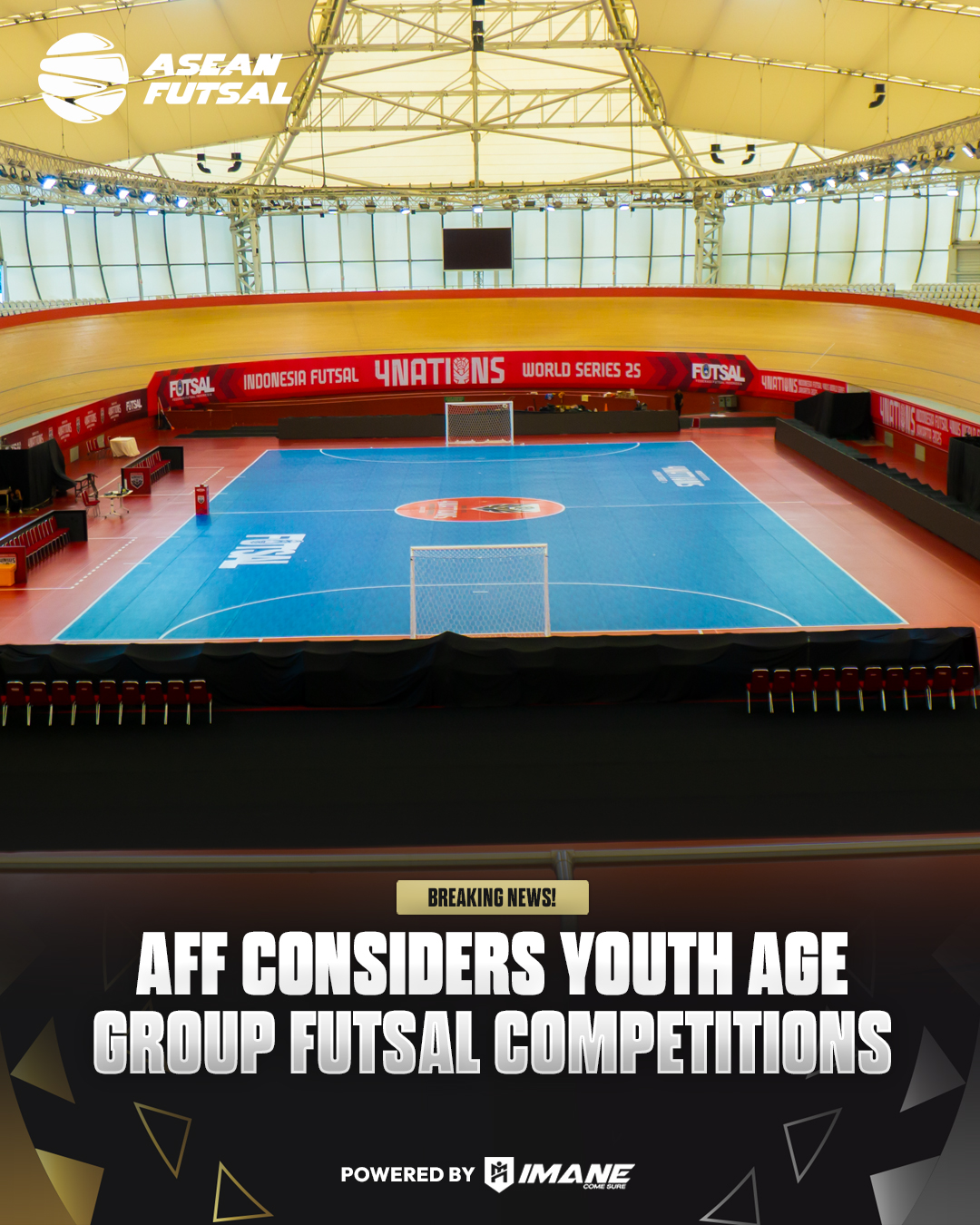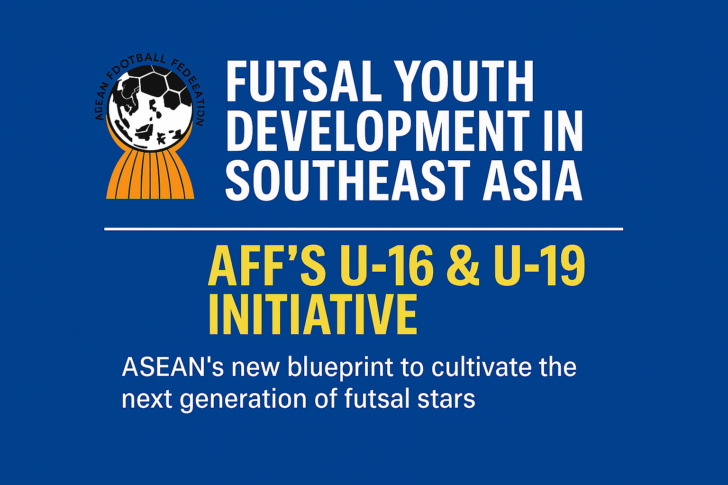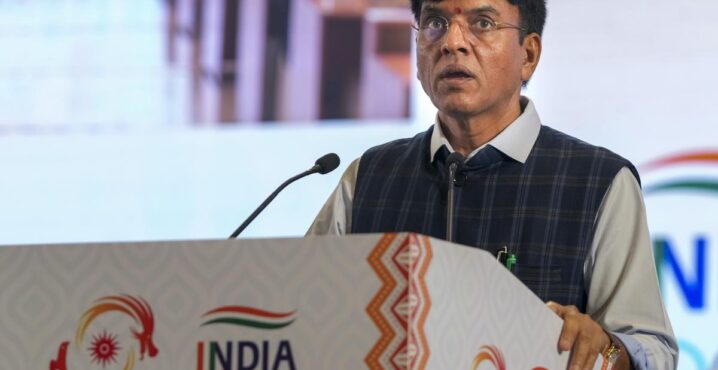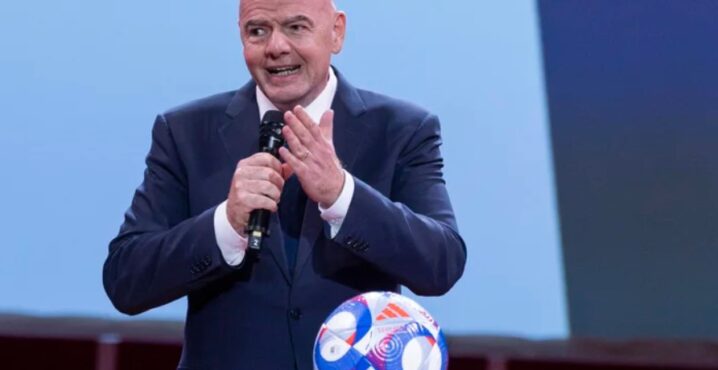Estimated reading time:19 minutes, 13 seconds
As Global Momentum Builds, Southeast Asia Charts a Path for Youth Futsal Growth
Futsal – the fast-paced, indoor cousin of football – is gaining strategic importance in global youth development. In Southeast Asia, the ASEAN Football Federation (AFF) is now turning its focus to youth futsal. The AFF has begun exploring U-16 and U-19 futsal competitions, even soliciting participation from member nations for a planned inaugural tournament in December. Although still in the planning stages, this move is widely seen as a positive step for Southeast Asian futsal development. The timing aligns with a broader trend: futsal replaced traditional 11-a-side football at the Youth Olympic Games (YOG) in 2018 and will feature again in 2026. This report examines the context and implications of AFF’s youth futsal initiative – from its regional significance to how it complements global futsal development – with comparisons to other regions and insights from experts.

Source: ASEAN Futsal Facebook page
AFF’s Youth Futsal Initiative (U-16 and U-19)
What is being planned? The AFF is preparing to launch two new youth futsal tournaments at the Under-16 and Under-19 levels. According to regional futsal reports and soon after confirmed on their Facebook page, AFF is actively seeking member associations to send teams to an inaugural youth futsal event slated for December 2025. This would mark the first time Southeast Asia holds futsal championships for these age groups, complementing the existing AFF Futsal Championship for senior national teams. While details are still being finalized, the intent is to make these youth tournaments a regular part of the AFF competition calendar.
Why now? The push for youth futsal comes as Southeast Asian futsal reaches a turning point. Traditional regional powerhouses like Thailand have long dominated at senior level (Thailand has multiple AFF Futsal Championships and strong FIFA Futsal World Cup showings), but other ASEAN nations – Vietnam, Indonesia, Malaysia, and others – are rapidly improving their futsal programs. AFF’s leadership recognizes that sustaining this progress requires starting at the grassroots and youth levels. By introducing U-16 and U-19 competitions, AFF aims to institutionalize a development pathway for futsal players. “This is considered a positive start for the development of Southeast Asian futsal,” ASEAN stated, expecting many young future talents to emerge from these platforms.
AFF’s broader futsal vision: The federation’s interest in youth futsal is part of a continuum of support for the sport. In recent years, AFF has organized annual senior futsal championships (for men’s and women’s teams) and even club futsal championships. However, youth players previously had no regional futsal arena. AFF General-Secretary Winston Lee Boon Aun (and other AFF officials) have often emphasized developing talent from the ground up, and these new tournaments will put that philosophy into action. By casting a wide net at U-16 and U-19, AFF encourages each member nation – from futsal-strong countries like Thailand and Indonesia to emerging futsal nations like Cambodia or the Philippines – to invest in youth training, coaching, and scouting to field competitive teams.
Context: Southeast Asian Futsal Development
Southeast Asia’s futsal scene has grown steadily over the last two decades. Thailand’s professional futsal league (established 2006) is among Asia’s strongest, and Indonesia’s Pro Futsal League (since 2006) and Malaysia’s MPFL (since 2019) have expanded the club scene. Yet, until now there has been a missing link in the development pyramid: dedicated youth competitions to feed the senior level. In many ASEAN countries, futsal talent is often scouted from school or university tournaments or even from 11-a-side football programs that convert players later. The AFF U-16 and U-19 futsal championships would formalize a pipeline for players to gain international experience early.
Several ASEAN nations have already begun nurturing youth futsal domestically, highlighting the demand for regional competition. For example, in 2021 Indonesia launched its first-ever U-20 futsal league, a private initiative by a former national player, to give teenagers competitive matches over a two-month season. The Indonesian national futsal coach monitored that league to identify prospects. Thailand, Vietnam, and Malaysia have also organized youth futsal tournaments at school or state levels. These grassroots efforts demonstrate a growing base of young players ready to step up. An AFF U-19 or U-16 Championship would allow the best of these players to test themselves against regional peers, raising the bar for everyone.
From a development perspective, the benefits of such tournaments are multifold:
- Early Talent Identification: Coaches can spot and fast-track exceptional players. (Notably, Thailand’s famed pivot Suphawut Thueanklang was a product of youth futsal programs and debuted internationally as a teenager.)
- International Experience: Youth players gain exposure to different playing styles and higher pressure environments. AFF’s planned competitions will offer invaluable international experience “for players thriving in domestic competitions,” as Oceania’s futsal director Chris Kemp said about their own youth futsal program. This experience hardens young players and eases their transition to senior national teams.
- Inspiration for Grassroots: Knowing there is an AFF youth championship to aim for can motivate local academies and schools to invest in futsal training. It creates a clear goal for teenagers who love futsal – they can represent their country before reaching senior level.
- Coaching and Refereeing Development: More youth tournaments mean more opportunities to train specialized futsal coaches and referees in the region, strengthening the overall ecosystem.
Ultimately, AFF’s U-16 and U-19 futsal initiative should help broaden the talent base. Southeast Asia has already produced World Cup-level futsal teams (Thailand and Vietnam both reached the FIFA Futsal World Cup knockout stages in recent editions), and with systematic youth development, the region could see more countries closing the gap with Asia’s elite (Iran, Japan) in the future. AFF’s move is timely, coming as futsal’s profile grows and the sport gains recognition in multi-sport events and youth circuits worldwide.
AFC U-20 Futsal Asian Cup: History, Impact, and Future
Before AFF’s youth push, the Asian Football Confederation (AFC) had set the precedent by launching the AFC U-20 Futsal Championship (now rebranded as the U-20 Futsal Asian Cup) in 2017. This was the first continental youth futsal tournament in Asia, aimed at players under 20. History & Format: The inaugural edition was hosted in Thailand in 2017, followed by a second edition in Iran in 2019. The competition gathered 21 teams in 2017 and 12 teams in 2019, reflecting strong interest across Asia. Iran won the 2017 title, defeating Iraq 2–0 in the final, while Japan clinched the 2019 championship with a 3–1 victory over surprise finalist Afghanistan. These tournaments revealed the depth of talent in Asia: traditional futsal powers like Iran, Japan, and Thailand performed well, but there were also breakout successes by non-traditional teams (e.g. Afghanistan’s run to the 2019 final was extraordinary).
Impact on development: The AFC U-20 Futsal Cup quickly proved its worth as a development tool. Many players from the 2017 and 2019 youth tournaments graduated to senior national teams. Perhaps the most striking impact was on Afghanistan – a country with modest futsal infrastructure that shocked the continent by reaching the 2019 final. Though they fell just short of the title, their coach Abdul Razaq Momrak hailed the achievement as a foundation for the sport’s growth at home. It was Afghanistan’s first-ever AFC final in any category, illustrating how youth futsal opened new horizons. Similarly, countries like Indonesia and Vietnam, which made the knockout rounds, gained confidence and experience that have boosted their senior squads.
Another benefit has been the platform for coaches and analysts. With youth competitions, Asian futsal coaches can test tactics and develop young talent in a tournament setting. The data and lessons from these events inform each nation’s training programs. In short, the AFC U-20 Futsal Asian Cup has been a catalyst for raising the level of play across Asia’s next generation.
Will it continue? The future of the AFC U-20 Futsal Asian Cup has been in flux. The tournament was intended to be biennial, but the 2021 edition was cancelled due to the COVID-19 pandemic. As of 2025, no U-20 tournament has been held since 2019, and AFC’s competition calendar has focused on senior and women’s futsal events in the immediate term. There are indications the AFC plans to resume youth futsal competitions once conditions allow –– but a formal announcement is still awaited. In the meantime, AFF’s regional initiative at U-16 and U-19 could complement and fill the gap left by the paused AFC U-20 tournament. By the time, AFC revives the U-20 Futsal Asian Cup (possibly aligning with the next Youth Olympic cycle or a future world youth event), Southeast Asian teams would be better prepared thanks to the experience gained in AFF’s youth championships.
It’s also worth noting that the AFC’s emphasis on futsal development remains strong overall. The confederation recently updated its futsal competition structures (e.g., expanding the AFC Futsal Asian Cup and planning a Women’s Futsal Asian Cup for June 13 to 24, 2028). While youth tournaments have taken a backseat during the pandemic recovery, the long-term vision recognizes that today’s U-17 or U-19 players are tomorrow’s Asian champions. AFF’s move can be seen as aligning with that vision at a sub-confederation level, ensuring ASEAN member countries won’t fall behind in youth development while waiting for AFC events to resume.
Youth Futsal Around the World: A Comparison
AFF’s foray into youth futsal mirrors trends in other regions, where confederations have established junior futsal championships to nurture talent. Table 1 summarizes key youth futsal competitions globally and where Southeast Asia fits in:
| Region/Organization | Youth Futsal Competition | Established | Recent Edition | Notes |
| Southeast Asia (AFF) | AFF U-16 & U-19 Futsal (planned) | 2025 (planned) | First edition pending | First-time youth events, slated for Dec 2025 |
| Asia (AFC) | AFC U-20 Futsal Asian Cup | 2017 | 2019 (Iran) | Biennial until 2019. Iran (2017) and Japan (2019) champions |
| Europe (UEFA) | UEFA Under-19 Futsal Championship | 2019 | 2023 (Croatia) | Held biennially. Spain won the inaugural 2019 and 2022 tournaments, Portugal won 2023 |
| South America (CONMEBOL) | Sudamericano Sub-20 (U-20 Futsal) | 2004 | 2024 (Peru) | Held roughly every 2 years. Brazil and Argentina have dominated historically. 10th edition took place in 2024 |
| Oceania (OFC) | OFC Youth Futsal Tournament (U-18) | 2017 | 2017 (Auckland) | One-off event as qualifiers for YOG 2018 |
| Global | Youth Olympic Games Futsal (U-18) | 2018 | 2018 (Buenos Aires) | Replaced 11-a-side football at YOG; hugely successful debut |
Europe: UEFA has been one of the frontrunners in formalizing youth futsal. The UEFA Under-19 Futsal Championship (often called U-19 Futsal EURO) was launched in 2019, making it the first confederation-wide youth futsal tournament. It immediately proved popular and competitive – the 2019 finals in Latvia saw Spain crowned champion, and by the 2023 edition eight different nations had featured in the semi-finals, indicating a broad talent spread. UEFA’s commitment to a biennial U-19 event (even holding editions in 2022 and 2023 back-to-back due to a COVID postponement) has strengthened grassroots futsal in Europe. Young players in Spain, Portugal, Italy, Ukraine, etc., now grow up aiming not only for the FIFA Futsal World Cup but also for youth continental glory.
Latin America: South America’s CONMEBOL has perhaps the oldest youth futsal competition – the Sudamericano Sub-20 began in 2004. For over 20 years, this U-20 South American Championship has been held nearly biennially, producing a generation of futsal stars from Brazil, Argentina, Paraguay, and beyond. Brazil’s consistent dominance in youth futsal (they have won a majority of the CONMEBOL U-20 titles) translates to continued strength at the senior level – an indication that investing in U-20 leagues and tournaments yields long-term benefits. The 2024 edition in Peru was the 10th installment of the tournament, underlining how ingrained youth futsal development is in South America’s sporting culture. AFF’s initiative, while much newer, is a step toward giving Southeast Asian futsal a similar long-term foundation. Over time, regular AFF youth tournaments could foster a rivalry and standard akin to the intense Brazil-Argentina clashes that have defined South American futsal.
Other regions: In Oceania, a full youth championship is not yet established, but the OFC organized a special youth futsal tournament in 2017 as the qualifier for the 2018 Youth Olympics. That competition included both boys’ and girls’ teams from Pacific nations, illustrating the inclusive approach to boost futsal’s profile. OFC’s head of competitions noted they were “excited to be offering exposure and international experience” to youth players through that event. While it was a one-time tournament, it showed that even smaller confederations see value in youth futsal. North and Central America (CONCACAF) have yet to launch a regular U-18 or U-20 futsal championship, but they too participated in Youth Olympic qualifiers (Costa Rica, for example, qualified for the 2018 YOG boys’ futsal). In Africa, confederation-wide youth futsal is still absent – the focus there remains on establishing senior futsal in more countries, but interest is growing (Morocco’s recent rise in world futsal has spurred discussions of grassroots programs).
Youth Olympic Games influence: The inclusion of futsal in the Youth Olympics has been a global game-changer. At Buenos Aires 2018, futsal’s Olympic debut was met with packed arenas and enthusiastic crowds. The tournament – effectively an U-18 world championship – showcased how futsal can captivate a youth audience on the world stage. FIFA and the IOC opted to have futsal at the YOG because it’s fast, skillful, and logistically easier (smaller rosters and indoor venues) than full football. “Replacing the traditional 11-a-side game at the YOG, futsal enjoyed an explosive debut on the Olympic stage, dazzling crowds with its scintillating skills and high-octane intensity”, an Olympic report noted. Importantly, this wasn’t a one-off: futsal will return at the 2026 Youth Olympics in Dakar, reaffirming that it “continues to be a part of the Youth Olympic Games, with its next appearance scheduled for 2026”. For AFF and its members, this global validation of youth futsal adds momentum – an ASEAN U-19 champion might one day vie for a Youth Olympic medal, and that prospect encourages national federations to pour more resources into youth futsal development now.
Expert Opinions and Perspectives
The move toward youth futsal competitions in Southeast Asia has drawn support from coaches, officials, and futsal experts who see it as vital for the sport’s growth. While formal quotes from AFF officials are yet to be published (pending the official tournament launch), insights can be gleaned from analogous comments in the futsal community:
- AFF Leadership (Implied): The AFF’s intent itself speaks volumes. By initiating U-16 and U-19 tournaments, AFF acknowledges that early investment is key. One can infer the mindset: youth futsal will “significantly contribute to the development” of the sport in the region, echoing sentiments expressed in regional futsal circles. It shows AFF’s strategic view that futsal success is built from the bottom up, much like their approach in 11-a-side football (where AFF has long held U-16 and U-19 football championships).
- Coaches/Technical Experts: Coaches in the region have long advocated for more youth competitions. For instance, Miguel Rodrigo, a Spanish coach who has led Thailand’s national futsal team, noted that having coached Thailand’s U-20 squad in the AFC championship, he saw first-hand how competitive youth tournaments elevate player performance (he reminisced that the inaugural AFC U-20 event in 2017 was a milestone experience for young Thai players). Noting that young players like Panut Kittipanuwong and Muhammad Osmanmusa demonstrated high-level capabilities during the competition. Another veteran, Vic Hermans, who has coached multiple Asian teams, has openly criticized the lack of youth futsal competitions in Asia in the past, suggesting that “when you want more Asian teams reaching the World Cup quarter-finals, you need youth competitions” (paraphrasing a sentiment he shared on development forums). These expert views underline that talent needs nurturing through regular competition, not just training camps.
- AFC and OFC Officials: Outside ASEAN, futsal development heads have explicitly supported youth initiatives. We saw Chris Kemp (OFC) highlight how exposing youths to international play accelerates their growth: “With men’s and women’s futsal gaining popularity throughout the region, we are excited to be offering exposure and international experience for players thriving in domestic competitions,” he said when launching Oceania’s youth tournament for Youth Olympic qualification. Similarly, AFC’s Technical Director of futsal has pointed out that countries which performed well in the AFC U-20 Futsal Championship have subsequently improved at senior level, calling the tournament a “bridge between grassroots and elite competition.” These viewpoints reinforce that AFF’s plan is on the right track – it aligns with expert consensus that playing equals development in futsal.
- Players and Analysts: Top futsal players often credit their youth experiences for their success. For example, Brazilian star Falcão and Portuguese star Ricardinho have spoken about starting futsal as kids. While not specific to AFF, their stories resonate: futsal’s small-sided nature forces quick thinking and ball mastery at a young age. “Futsal, with its fast pace and confined spaces, was where I learned the value of precision and finesse’ Cristiano Ronaldo stated when describing why futsal is ideal for player development. Analysts writing for our platforms have noted that including futsal in events like the Youth Olympics and creating U-19 Euros has “played a significant role in introducing the sport to a broader youth audience”, and they often call for other regions to follow suit. In this light, AFF’s move has been met with enthusiasm in futsal forums – it is seen as ASEAN “finally catching up” on youth development and a potential game-changer for the region’s competitiveness, cited in the Futsal in Australia Facebook page.
Benefits to Talent Development and the Futsal Ecosystem
If executed well, the AFF U-16 and U-19 futsal championships could become a cornerstone of Southeast Asia’s futsal ecosystem. The talent development benefits are clear: players get high-level competition at an earlier age, accelerating their technical and tactical growth. Young futsalers who might otherwise switch to football (due to more youth football tournaments) could be retained in futsal when they see clear opportunities and prestige in the sport. This helps futsal carve out its own talent pool rather than borrowing from football. Over time, a larger pool of specialized futsal players will elevate the standard of club leagues and national teams.
At the grassroots level, having marquee youth events can spur federations to create school leagues, youth academies, and scouting programs. For example, the Football Association of Thailand might establish a structured U-17 national futsal league to feed their AFF U-19 team, or Indonesia’s federation might expand its youth tournaments to ensure their national selectors have a wide range of talent to choose from. Such grassroots programs mean more kids playing futsal at early ages, which can also benefit society by promoting healthy lifestyles and offering another avenue for youth sports participation in countries where football often overshadows other sports.
The broader futsal ecosystem – including coaching, refereeing, and administration – stands to gain as well. Coaches will need to be trained for youth futsal teams; this could lead to coaching courses focusing on youth futsal methodology (distinct from senior futsal or football coaching). Referees too would get more games to officiate, including learning to manage games of younger athletes which can require a different approach. Even event management in each host country will get a boost (organizing an international youth tournament can build expertise that later helps in hosting bigger events like AFC championships or World Cup qualifiers).
Moreover, success in youth events can rally sponsors and media attention. A gripping U-19 final between, say, Thailand and Vietnam could draw TV viewers and social media buzz, convincing sponsors that futsal is worth investing in. In Europe, the U-19 Futsal EURO final in 2022 (hosted by Spain) was televised and trended among sports fans, proving that well-marketed youth futsal can attract an audience. Southeast Asia, with its young population and passion for football, is fertile ground for futsal fandom if the narrative is built – e.g. “Meet the future stars of ASEAN futsal.” We may see brands supporting youth futsal teams or government sports bodies allocating funding specifically to futsal development once these competitions demonstrate their value.
Conclusion and Outlook
The AFF’s exploration of U-16 and U-19 futsal competitions is a timely and strategic initiative that could significantly shape the future of futsal in Southeast Asia. By providing a structured competitive platform for youth, AFF is addressing a critical gap in the development pathway. This move complements global trends: as futsal continues to gain prominence – from the Youth Olympics to established youth championships in Europe and South America – Southeast Asia is positioning itself not to be left behind.
Early indications suggest these new tournaments will energize futsal development at all levels in the region. Member associations are likely to respond by investing in their youth training programs, knowing there is a tangible goal (regional titles and recognition) for their U-16 and U-19 teams. Over the next decade, one can envision a scenario where the AFF U-19 Futsal Championship becomes as prestigious in ASEAN as the AFF Suzuki Cup is for senior football – a stage where regional pride and emerging talent intersect.
The ripple effects could extend to improved performance on bigger stages. Today’s 15-year-old who gets discovered in an AFF U-16 futsal tournament might be the player leading their country to an AFC Futsal Asian Cup final or even a World Cup quarter-final in years to come. In the long run, a stronger Southeast Asian youth futsal circuit will raise the competitiveness of ASEAN nations vis-à-vis the Asian powerhouses. It might also encourage AFC to reinstate and even expand youth futsal contests (perhaps an AFC U-17 championship in addition to U-20, similar to how UEFA moved from U-21 to U-19 for better alignment with development stages).
In summary, the AFF’s planned youth futsal competitions represent a forward-looking, developmental vision. They recognize futsal’s unique developmental benefits – skills, speed, smarts – and seek to harness those for Southeast Asian youth. As futsal legend Falcão once implied, it is in those tight spaces and fast plays that future stars are forged. By investing in youth futsal now, Southeast Asia is not only catching up with global trends but could become a leader among Asian sub-regions in producing top-tier futsal talent. With continued support from AFF, member associations, and the broader futsal community, this initiative can be the catalyst that elevates Southeast Asian futsal to new heights, ensuring the sport’s growth is robust and sustainable for the next generation.
Organ Donation
Futsal Focus is a supporter of Dáithí Mac Gabhann and his family’s campaign to raise awareness of Organ Donation. We encourage our readers to learn more about Organ Donation: https://www.organdonation.nhs.uk/
Futsal Focus
You can read more articles about International Futsal by going to the top navigation bar or by clicking here
If you like this article and would like to keep updated on Futsal news, developments, etc. You can now follow Futsal Focus via Google News. By following our page which will send you an alert as soon as we publish an article. Please click here and follow us on Google.
You can also keep updated on Futsal news, developments by submitting your email below in the Subscribe to Futsal Focus option.
Follow Futsal Focus by clicking on Facebook, Twitter, or Instagram or on the social media buttons on the website
















![Validate my RSS feed [Valid RSS]](https://www.futsalfocus.net/wp-content/uploads/2020/01/valid-rss-rogers.png)




